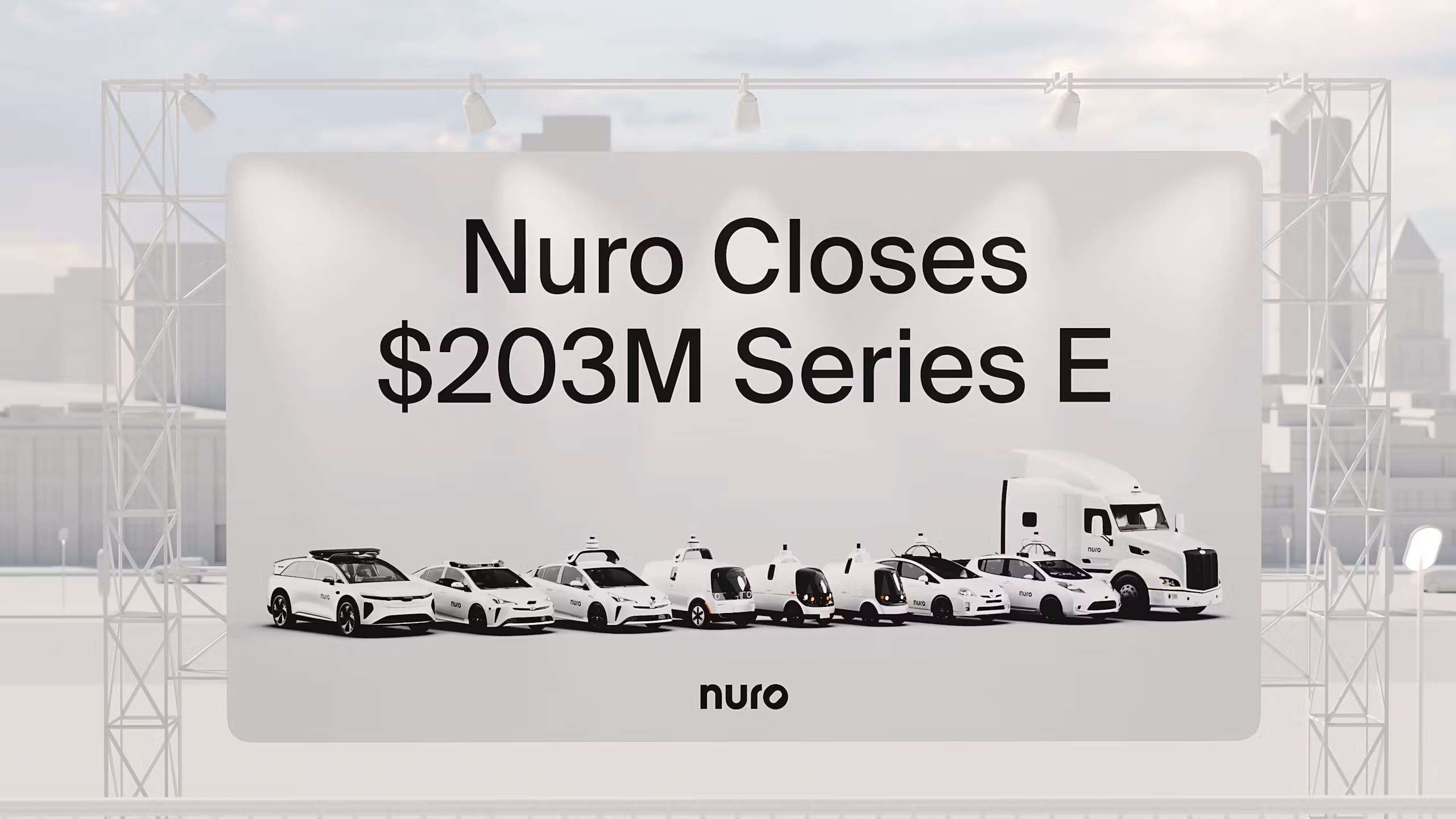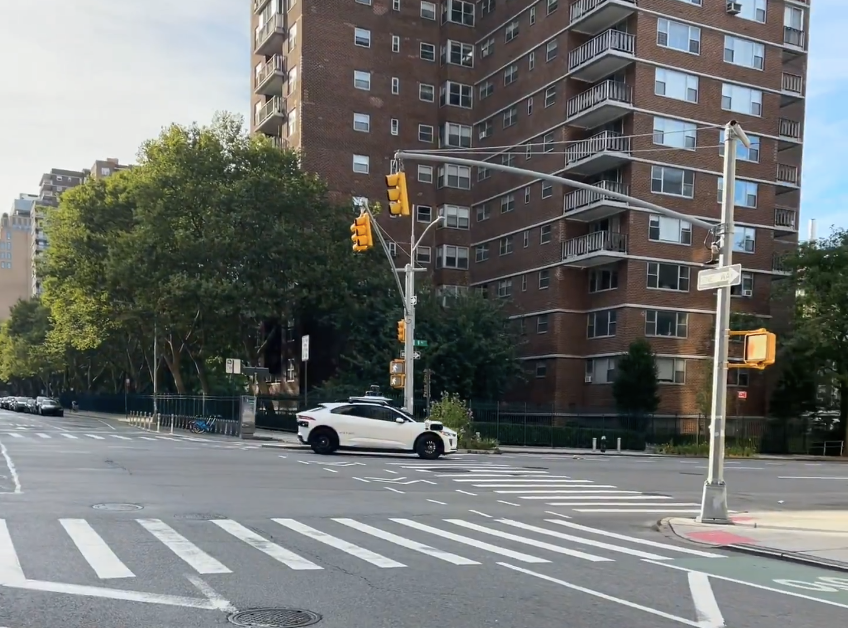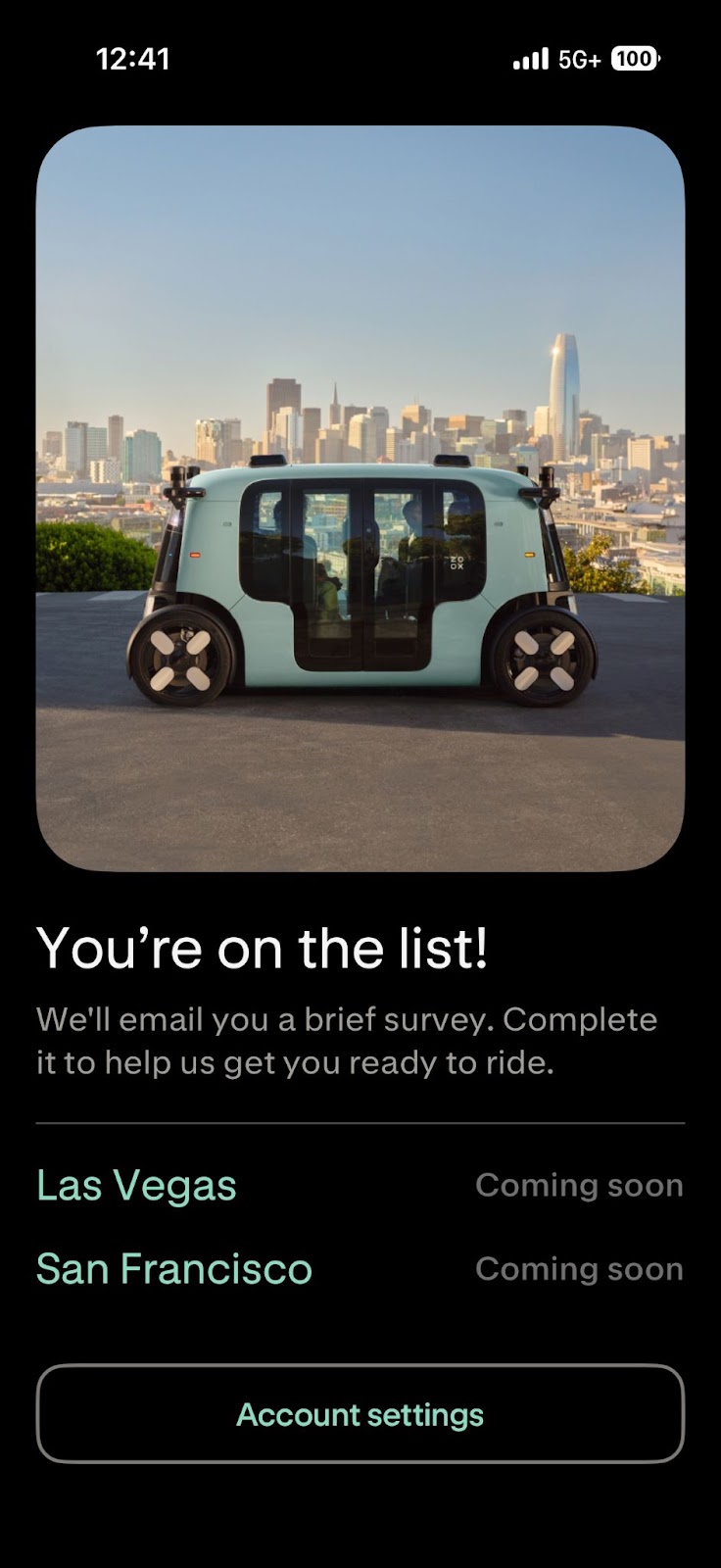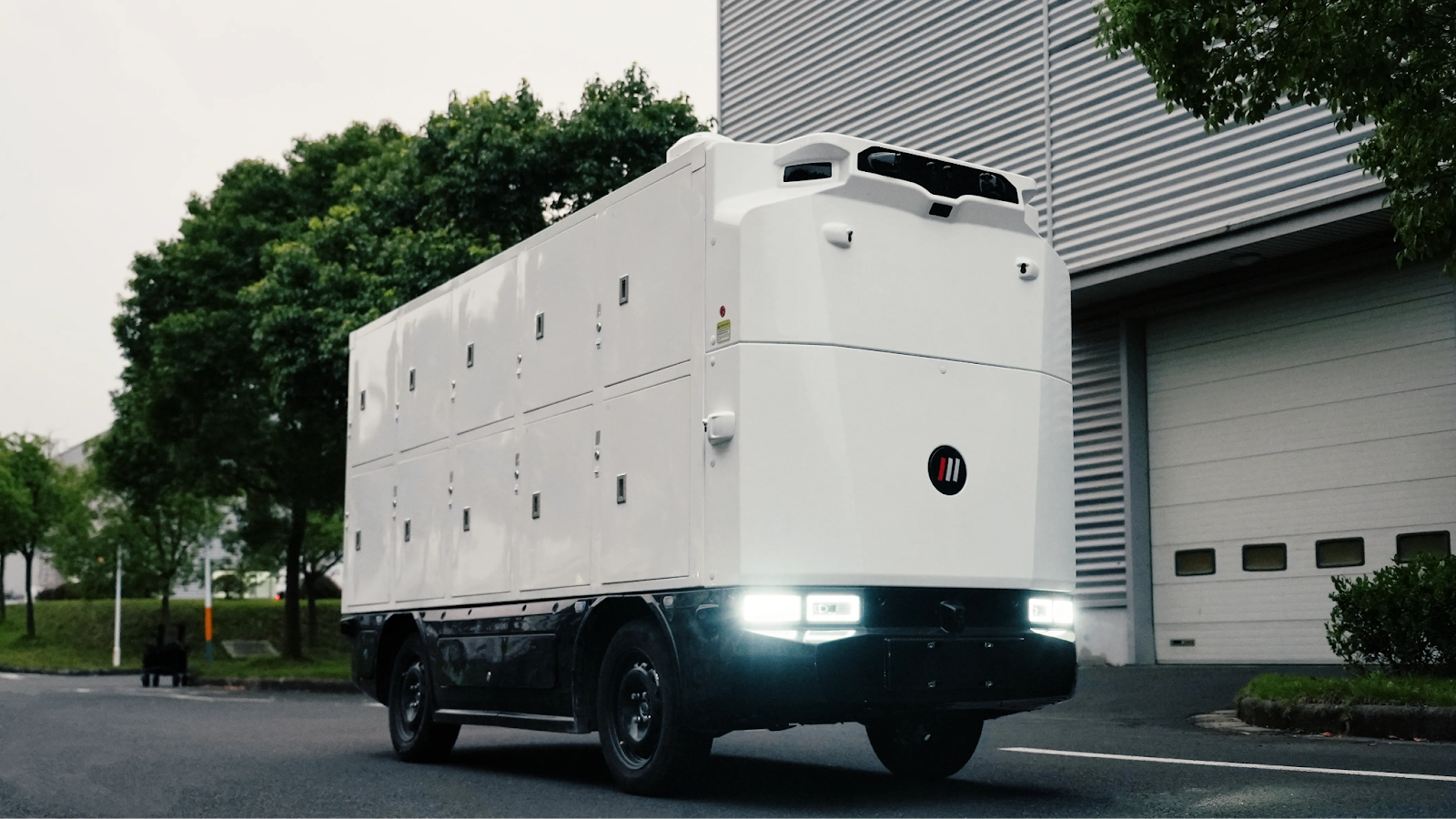
Welcome to the Ride AI newsletter: your weekly digest of news and intelligence at the intersection of technology and transportation.
On July 1st, we had a really great deep dive with Terawatt CEO Neha Palmer about the challenging logistics involved with powering autonomous vehicle fleets. Now the full chat is available on the Ride AI YouTube channel. Enjoy!
Are you an AV industry insider, academic, or work in media? How do you think the robotaxi industry is doing? Where do you think autonomy will be in the next 10 years? Ride AI has partnered with McKinsey for a webinar series, and we want to hear your thoughts! Take our survey below and get a 25% discount for the 2026 Ride AI conference. It takes less than 10 minutes, and results will be shared with all participants.

The Alphabet subsidiary received its permit from the New York Department of Transportation on Friday, marking the city's first autonomous vehicle testing launch. Mayor Eric Adams announced that Waymo will start testing up to eight vehicles in Manhattan and Downtown Brooklyn through late September with the potential to extend the program. New York state law requires the company to have a driver behind the wheel during testing.
"We're a tech-friendly administration and we're always looking for innovative ways to safely move our city forward," Adams said in a release. The news comes just two months after the company said it filed permits to test its cars in the city with a trained specialist behind the wheel.
Waymo has been aggressively expanding its services nationwide, launching in Austin and Atlanta this year and expanding its San Francisco operations in March. The company also plans to bring autonomous vehicles to Miami and Washington, D.C., and recently announced it will “roadtrip” to Philadelphia as it looks to break further into the Northeast market. CEO Tekedra Mawakana said the company surpassed 10 million robotaxi trips in May.
For years, autonomous vehicle companies have sought to introduce their technology to the Big Apple, with Waymo previously taking a crack at it in 2021 when it rolled out some cars for manual driving and data collection. As part of the new permit, Waymo must regularly meet and report data to DOT and work closely with law enforcement and emergency services.

PC: Nuro
The Silicon Valley startup announced Thursday that several investors, including existing backer Baillie Gifford, added another $97 million to its Series E round, bringing the total to $203 million. New investors include Icehouse Ventures, Kindred Ventures, Nvidia, and Pledge Ventures. Uber, which last month said it would make a "multi-hundred-million dollar" investment in Nuro as part of a broader deal with Lucid, also participated.
Nvidia's investment follows years of technical collaboration with Nuro. The startup uses Nvidia GPUs for its large-scale data processing and model training, and its latest compute model is built on the Nvidia Drive AGX Thor platform. The first $106 million tranche of Series E funding was announced in April with participation from T. Rowe Price Associates, Fidelity Management & Research Company, Tiger Global Management, Greylock Partners, and XN.
Nuro has raised $2.3 billion to date with a Series E post-money valuation of $6 billion. That's a 30% drop from its $8.6 billion valuation in 2021 when it raised $600 million in a Series D round. Like most startups in the nascent autonomous vehicle technology sector, Nuro was forced to examine its business model after economic conditions shut off the once-free-flowing tap of capital. The company went through several rounds of layoffs in 2022 and 2023 before overhauling its business strategy.
In 2024, Nuro scrapped plans to own and operate a fleet of low-speed, on-road delivery bots, and instead focused on licensing its technology to automakers and mobility providers. The pivot has appeared to gain traction, notably with July's Uber announcement to launch a robotaxi service using all-electric Lucid Gravity SUVs equipped with Nuro's self-driving tech.

While the app doesn’t currently do much, it does allow users to sign up for a waitlist for the company’s impending Las Vegas and San Francisco robotaxi service. If you reside in either area and are excited about the turquoise toasters, I suggest downloading the app and signing up to be one of the first in line.

Los Angeles-based Robomart unveiled its new RM5 delivery robot Monday, a level-four autonomous electric vehicle the size of a shuttle bus that has a maximum speed of 25 mph, a range of 112 miles, and features 10 climate-controlled lockers that can hold about 50 lbs each. With no space for a human driver, the vehicle is designed to make multiple deliveries on a single run, promising to make "on-demand delivery work economically."
The company plans to launch its own app where customers can browse options from various retailers, restaurants, and grocery stores, with a flat delivery rate of $3 per order and no markups, service fees, or tips. After an order is placed, Robomart will dispatch its vehicle to retailers for pickup, visiting multiple shops before heading out for deliveries. Upon arrival, customers use the app to unlock their assigned locker, similar to sidewalk delivery robots.
Robomart claims this setup will result in "70 percent lower fulfillment costs than human couriers," though the company doesn't explain how it arrives at that figure. The arrangement is however reminiscent of autonomous delivery services in China that are operated by the likes of Cainiao, Rhino, WeRide, and others, right down to the general layout of the delivery vehicle itself, although Robomart seems to have opted for solid state lidars instead of the standard spinning variants.

The company has been trialing its service for several years, previously using Mercedes minivans for fulfillment. Robomart says it has partnered with retailers including Ahold Delhaize, Unilever, Mars, Avery Dennison, and Yamaha Motors. The venture-backed company has raised less than $5 million since its founding in 2018 and is looking to collaborate with local businesses ahead of its planned launch in Austin, Texas later this year.
A Chinese company is threatening legal action over Baidu's announced partnership with UAE autonomous driving company Autogo, claiming trademark infringement. Chi Junxiu, who claims to be the founder and CEO of UOS Group (also known as Yousi Technology Co., Ltd.), posted a public demand that Baidu immediately terminate its strategic cooperation with UAE Autogo or ensure the business will never enter the Chinese market.
The dispute centers around the “Autogo” brand name. Chi's company successfully registered an Autogo trademark in China in 2022, though notably the trademark falls under Category 42 for website services, not autonomous driving services. The company, which shows zero employees in 2024 according to Tianyancha (a Chinese news and markets app), claims to be the global holder of the Autogo brand and exclusive operator in China. Interestingly, the autogo.cn domain name Chi mentions is currently listed for sale.
So is this a case of trademark trolling? According to trademark law (IANAL), Baidu's mention of "cooperation with Autogo of the UAE" in domestic publicity doesn't seem to constitute trademark infringement if it's merely a statement of fact and doesn't highlight Autogo text or graphics in its service interface. Additionally, Baidu's autonomous driving services would fall under Category 9 or 12 (passenger transport services), not the Category 42 website services Chi's company registered.
Baidu announced in March that its Apollo Go service had formed a strategic partnership with UAE's Autogo to provide driverless travel services in Abu Dhabi, marking further expansion in the Middle East market. As of now, Baidu has seemingly not yet responded to Chi's demands.
In other Baidu news, the company announced that Apollo Go had serviced 2.2 million fully driverless rides in Q2 2025. That’s a 148% increase YoY, pushing Apollo Go over the 14 million total rides mark.
Alright, that’s it from me… until next week. If you enjoy this newsletter, share it with your friend, colleague, or boss. Thank you for reading; Sophia out!
Get all the latest news in AI x Mobility across the globe.
Continue reading more about the world of robotics, automation, and AI